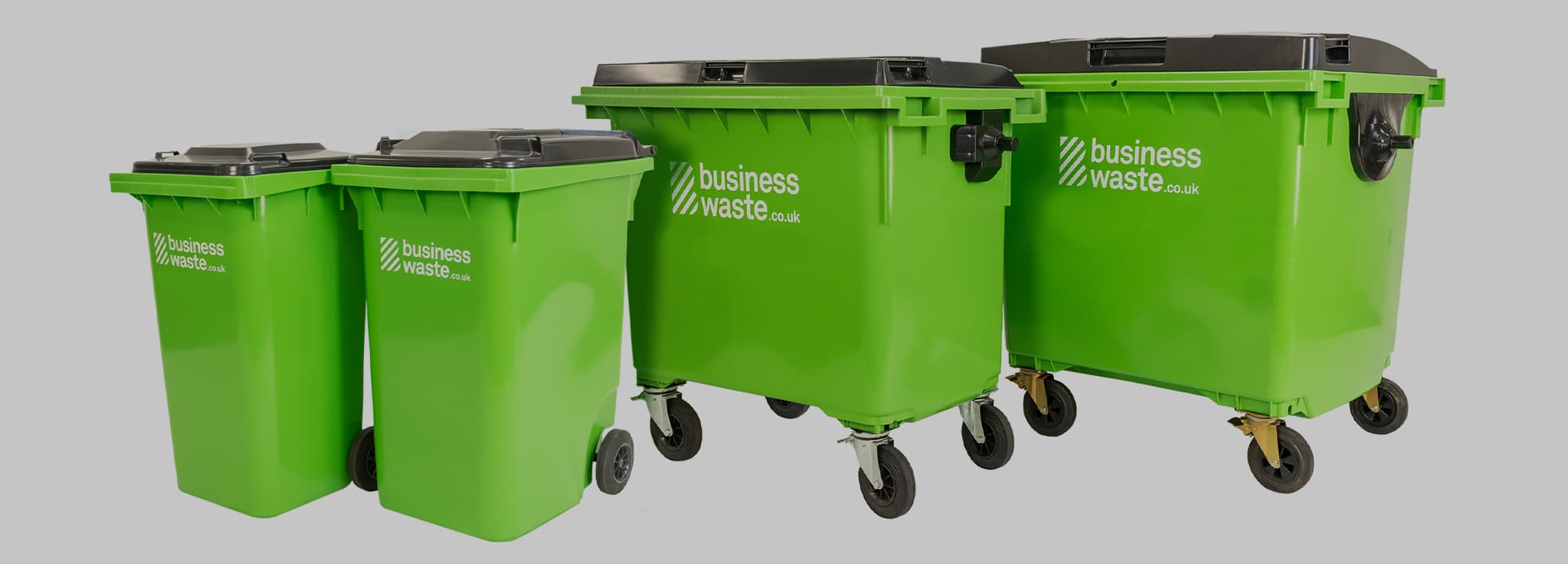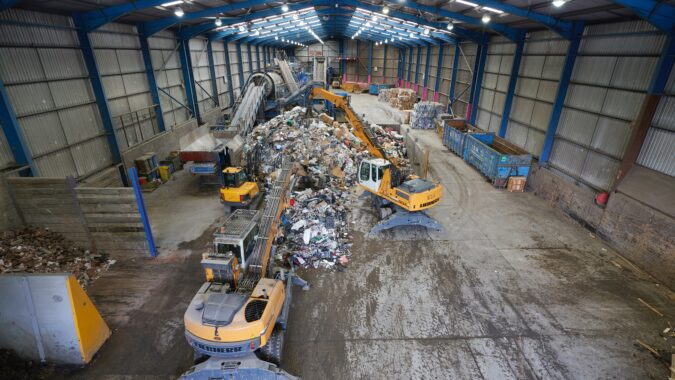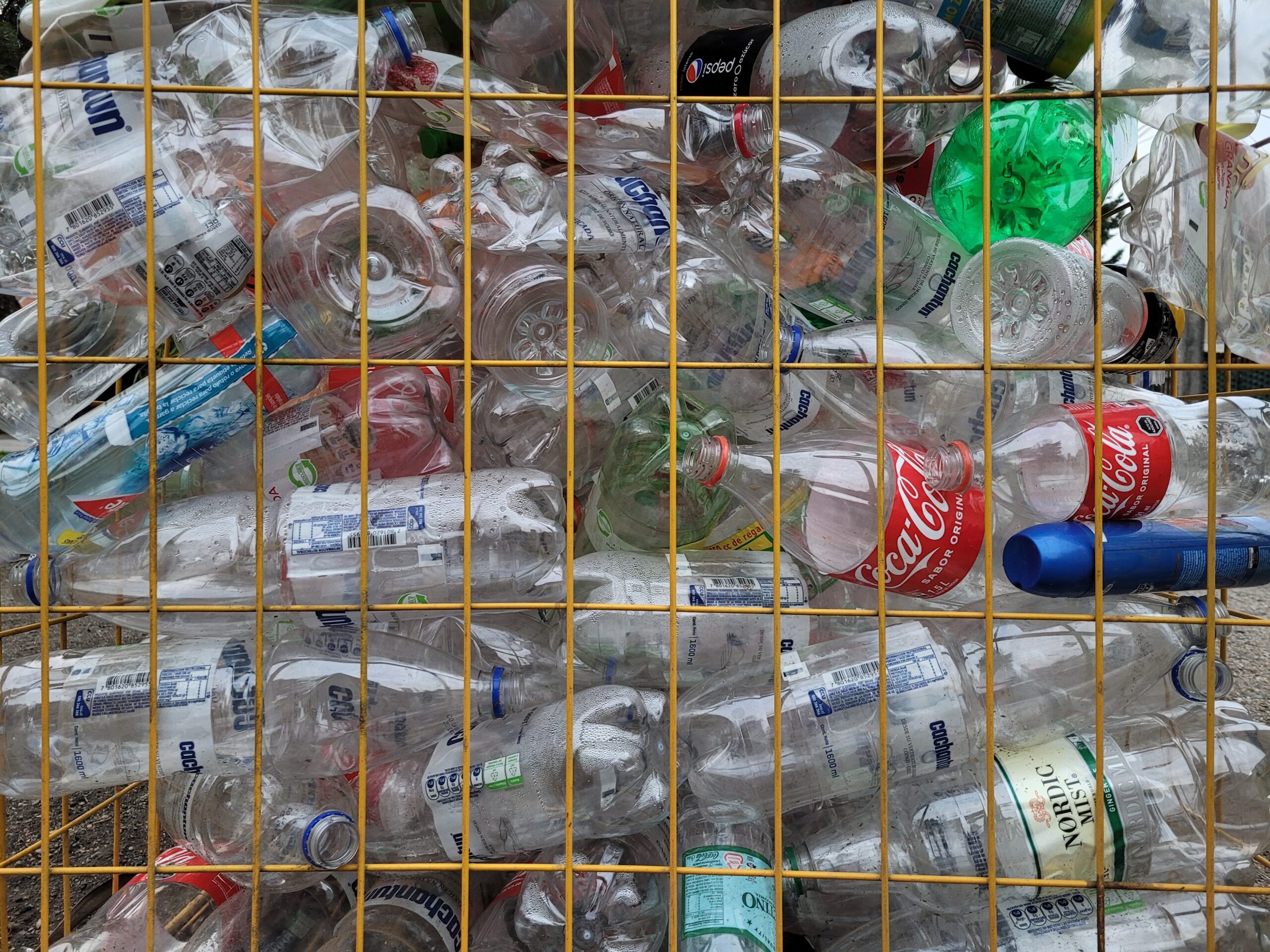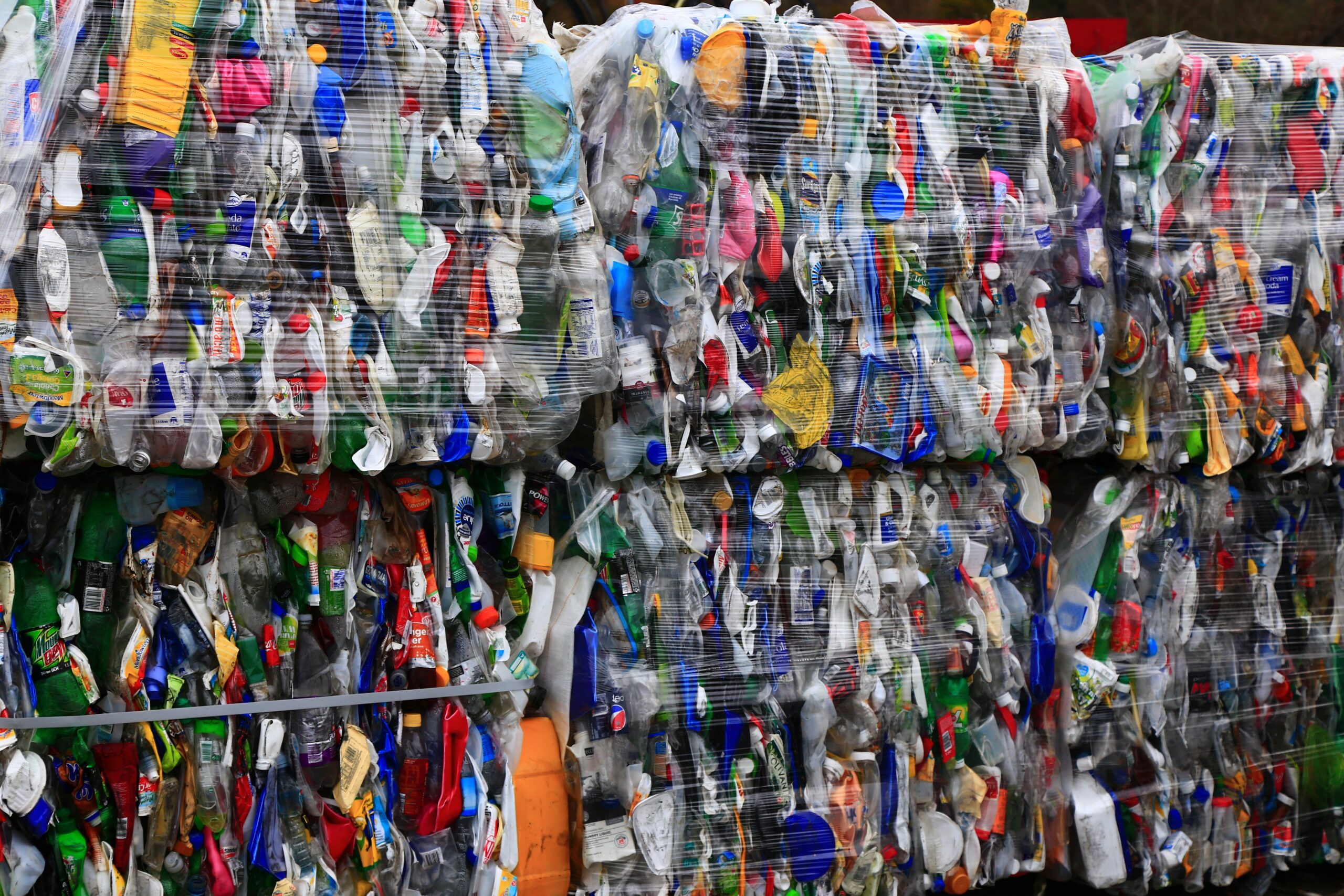
MRF Recycling
MRF recycling stands for materials recovery facility (or materials recycling or reclamation facility). It’s a place where domestic and commercial waste goes for sorting and processing before it’s sent out for final recycling, reuse, or disposal. Mechanical and technical equipment separates recyclable materials into individual waste streams.
There are more than 100 MRFs in the UK, which take a total of around 4.2 million tonnes of material every year. This is mainly made up of recyclable waste paper, glass, plastic, and metals. It’s estimated that the MRF market will increase to nearly 5 million tonnes by 2030 as MRF recycling becomes even more important.
Understand more about how MRF recycling works, why it’s important, and how to dispose of your commercial waste responsibly. For a free quote for your business waste collection, which could end up at an MRF, call 0800 211 8390 or contact us online.

Get a free quote
Get a fast FREE quote for commercial waste recycling
- Free quote within 1 hr
- Any type of business waste
- FREE bins and delivery
- We cover all of the UK
What is a
materials recovery facility?
A materials recovery facility (MRF) is a specialised plant that receives, sorts, and processes dry mixed recycling materials. They accept domestic, commercial, and industrial waste and sort the waste into single recyclable material streams. Mechanical and manual processes ensure as many recyclable materials are recovered as possible to re-enter the manufacturing process.
MRFs range in size with 108 sites spread across the UK. Crayford MRF in Dartford is the largest one in the UK, which processes 330,000 tonnes of recyclable rubbish every year. MRFs are operated by local authorities, major private contractors, the community/third sector, and SMEs.
Types of material recovery facilities
Most materials recovery facilities work in the same way as waste is sorted and processed for recycling. However, there are two different types of MRFs that affect the methods used. These are:
Clean MRFs
A clean materials recovery facility only takes materials that have already been separated from municipal solid waste. Less labour and time are needed at the clean MRF as the materials should already be sorted by type. The clean materials are processed and sorted by specifications at the MRF. However, clean MRFs have lower recovery rates as materials may be disposed of before they reach the MRF.
Dirty MRFs
A dirty materials recovery facility takes waste straight from commercial or domestic bins. The waste is separated into individual streams by manual and mechanical processes to determine recoverable and recyclable materials. It’s a more costly, longer, and labour-intensive process but ensures 100% of waste is sorted, which leads to higher recovery rates. Contamination risks are higher though, and dirty MRFs cost more to operate.
How does a
materials recovery facility work?
Processes and methods can vary between materials recovery facilities, but each one generally follows these processes:
- Waste collection and transportation – domestic and commercial waste are collected by licensed waste carriers and transported to a nearby MRF.
- Separation – the waste is mostly processed by machinery that separates it into different recyclable streams (such as plastics, paper, and glass). Some manual separation may be required before it’s screened by hand to ensure high levels of accuracy.
- Cleaning – all the materials are then cleaned in their individual streams to remove any contaminants, using a combination of machines and by hand. Cleaning methods vary for the recyclables:
- Glass cleaning – the glass passes under a magnet to remove any metals and then an air classifier to remove any paper.
- Metal cleaning – a magnet or eddy current separator is used to remove any non-ferrous metals.
- Plastic cleaning – optical sorting machines or workers separate any plastic containers using the machine or by hand.
- Baling – cardboard, paper, plastic, and metals are all baled in their individual waste streams. Glass may be placed in separate containers.
- Distribution – the bales or containers of recyclable materials are sent out to recycling plants, manufacturers, and other places for recycling and reuse.
How much waste
do MRFs recycle?
MRF waste management is big business in the UK with more than 4.2 million tonnes of material processed at facilities every year. Annual estimates for the outputs of MRFs in the UK are around:
- 1,389,000 tonnes of paper
- 952,000 tonnes of glass
- 516,000 tonnes of plastic
- 234,000 tonnes of metal
The importance of materials recovery
facilities for waste management
MRFs are important for waste management as they provide a cost-effective and environmentally friendly solution, especially for household waste. Having individual bins for each type of recyclable rubbish (glass, paper, cardboard, plastic, and metal) would be impractical. They’d take up lots of space and require more collections, which would use even more fuel.
This would lead to higher waste management costs and a negative environmental impact due to the additional transportation journeys. Instead, the importance of a material recovery facility for waste management helps keep costs down for domestic waste removal and recycling. Plus, it ensures efficient separation and high recovery rates.
There’s a great importance of MRFs for businesses too. They help companies improve their recycling rates by recovering dry mixed recycling to ensure your business has a positive environmental impact. Greater recycling means less commercial waste goes to landfill too, which can reduce how much landfill tax you pay for lower business waste management costs.

Arrange responsible commercial waste disposal
Book commercial waste collection anywhere in the UK with Business Waste and rest assured that your rubbish is disposed of responsibly. Our large national network means we work with many materials recovery facilities across the UK. Your dry mixed recycling may be taken to a nearby MRF for processing.
All waste we collect is diverted away from landfill to help protect the environment and save your company money. We can provide free bins to store your dry mixed recycling and other individual waste streams – you only pay for collection. Daily, weekly, and fortnightly collections are available.
Licensed waste carriers will remove your bins and transport them to a local MRF where appropriate. One of our experts can advise on the disposal method and you’ll receive a free duty of care certificate confirming safe and legal disposal of your waste.
Get in touch with us today for a free no obligation quote for any type and amount of waste collection and disposal. Contact us online or call 0800 211 8390 for your tailored free quote or to speak with one of our friendly experts about your commercial waste collection and disposal needs.
Get a fast and free quote
Get a fast FREE quote for commercial waste disposal
- Free quote within 1 hr
- Any type of commercial waste
- FREE bins and delivery
- We cover all of the UK
